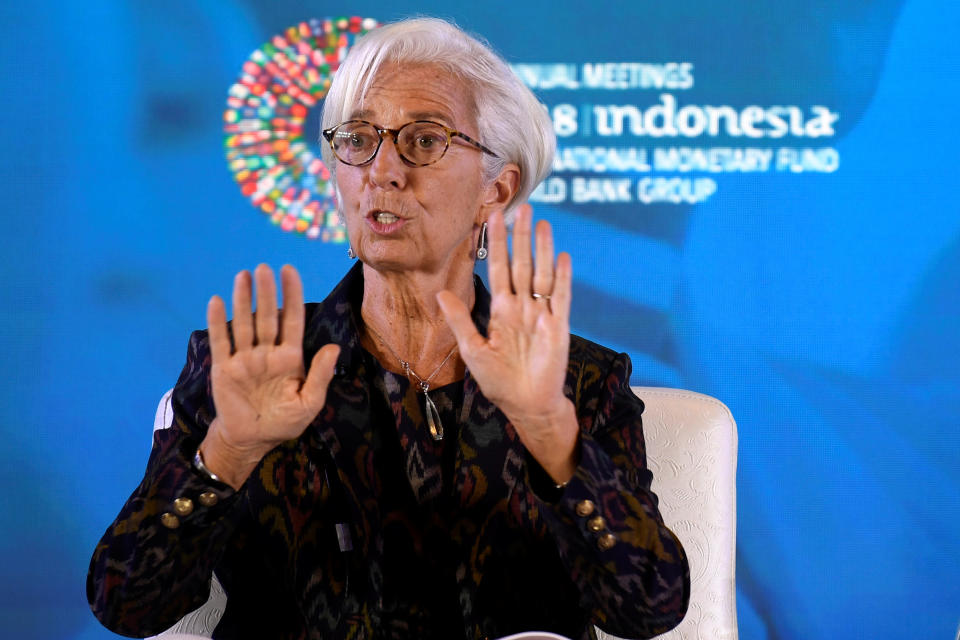IMF: No-deal Brexit threatens global financial stability
The International Monetary Fund (IMF) warned that Brexit is one of the biggest risks for global financial stability.
As part of its new Global Financial Stability Report, the IMF said on Wednesday that financial institutions have to “step up their preparations for a post-Brexit landscape” and prepare for the worst case scenario — a no-deal Brexit, also known as a hard Brexit.
This type of disorderly Brexit is where the UK crashes out of the European Union without any agreements in place. That would throw into question the rules surrounding cross-border trade, immigration, and financial services. The IMF said that financial institutions need to look at measures for a no-deal Brexit “in as much detail as possible.”
READ MORE: What is a no-deal Brexit? The key things you need to know
The two-yearly IMF report is one of the most comprehensive reviews it has carried out since the 2008 crash and is a health assessment of the financial system. The group recently downgraded global growth forecasts.
The IMF said that a disorderly Brexit could also “adversely affect market sentiment” and this kind of pressure could set off “sharp tightening of global financial conditions.” A no-deal Brexit is also tipped to spark European financial market fragmentation, meaning that money cannot flow around the system efficiently.

Washington-based IMF said that the continuity of financial contracts is “one of the most pressing issues” for derivatives in the short-term, namely through the transition period, which follows after Britain leaves the EU on 29 March, 2019. While there is no official confirmation of how long the transition period will be, it is tipped to end on 31 December 2020.
The derivatives contracts in question centre around euro clearing, which is worth £817bn (€930bn, $1tn) in daily business.
When banks and other financial institutions trade, those transactions need to go through a clearing process before they are settled. London is the international centre for euro clearing, which is the settlement of trades done in euros.
READ MORE: No-deal Brexit: UK will temporarily protect £817bn daily euro clearing business
This week, the UK government released one of its latest technical notices, saying that it that it will use legislation under the European Union (Withdrawal) Act 2018, known as the Act, to “introduce a range of transitional arrangements that will maximise continuity and minimise disruption to firms and consumers as we leave the EU, including in the no-deal scenario.”
The government is releasing 84 technical notices intended to explain how everyone, from the farmers and financiers, will be affected by a no-deal Brexit.
While the Bank of England has estimated that £41tn of derivatives face legal uncertainty after Brexit if the EU does not move to maintain existing rules, its financial policy committee issued a statement on Tuesday outlining that the UK’s banks and financial systems were ready for all the worst-case Brexit scenarios.
But on the other hand, it was concerned about how the European Union would cope if politicians on both sides are unable to reach a final Brexit deal.
The IMF added in its report that there is growing “anxiety” that a no-deal departure is becoming more and more likely.
It’s unsurprising considering prime minister Theresa May recently used her Conservative party conference speech to say that Britain’s shouldn’t be afraid of a no-deal Brexit and that she was willing to drag the UK out of the bloc without any agreements in place.
However, we may know by the end of this month what a Brexit deal will look like as these next two weeks will host a crowded schedule of talks ahead of a pivotal summit.


